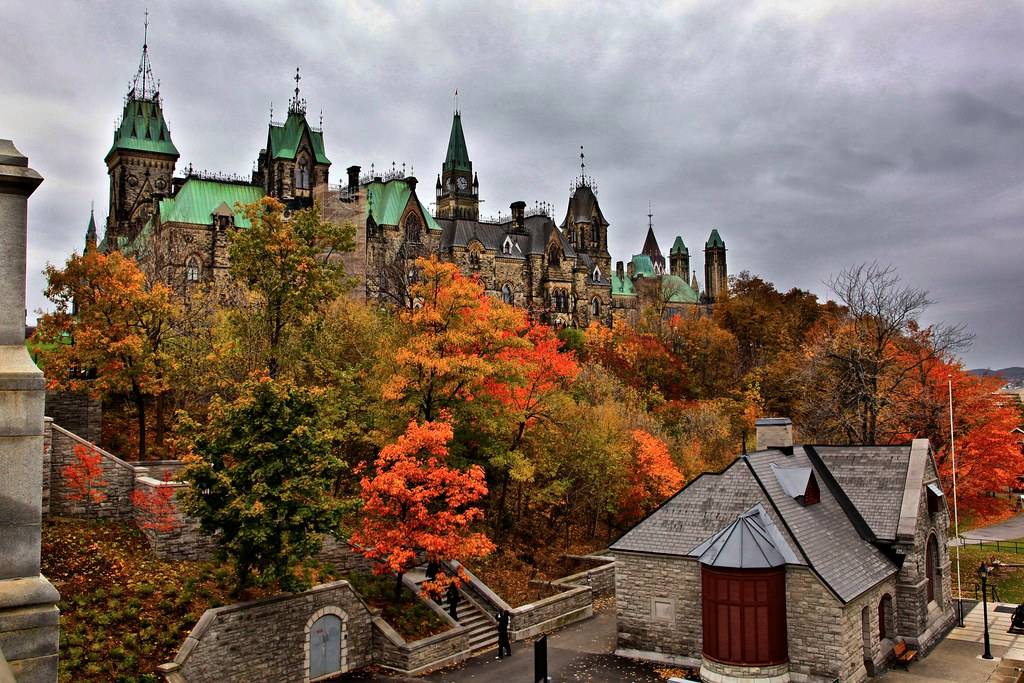The Dilemma Of Canada’s Permanent Resident Status After The Expiration Of The Maple Leaf Card Has Attracted Attention. Is Renewing The Card A Challenge?
The Dilemma Of Canada’s Permanent Resident Status After The Expiration Of The Maple Leaf Card Has Attracted Attention. Is Renewing The Card A Challenge?
Recently, there has been a lot of discussion about the dilemma of Canadian permanent resident status after the Maple Leaf Card expires. Successfully immigrating to Canada and obtaining a Maple Leaf Card does not mean permanent security of status. in recent years
Recently, the dilemma of Canadian permanent resident status after the expiration of the Maple Leaf Card has triggered a lot of discussion. Successfully immigrating to Canada and obtaining a Maple Leaf Card does not mean that the identity is permanently guaranteed. In recent years, the problem of losing Canadian permanent resident status due to the inability to successfully renew the Maple Leaf Card has gradually emerged. Many new immigrants know little about the relevant regulations of the Maple Leaf Card, which has become a major challenge they face.

01Maple Leaf Card and Permanent Resident Status
Basic introduction to Maple Leaf Card
The Canadian permanent resident card, known as the Maple Leaf Card, was officially launched on June 28, 2002. It has become a legal document proving the status of Canadian permanent residents. It has certain similarities with the green card in the United States. After the 9/11 incident, because the U.S.-Canada border is the longest undefended border in the world, the U.S. government proposed to the Canadian government to issue Maple Leaf Cards to permanent residents to enhance border security. The validity period of the Maple Leaf Card is five years from the date of issue, but there are some special circumstances. If permanent residents fail to fulfill their residency obligations abroad and are eventually deprived of their status, they can apply for a one-year Maple Leaf Card. This card is made of a new type of plastic material and has a number of security features. Its internal high-tech design is more sophisticated than bank financial card tapes. It contains all the necessary data to confirm the identity of a permanent resident. Only authorized officials can read this data. The card is not used to track the cardholder's activities, thus protecting the cardholder's privacy.

Maple Leaf Card and ID
Canada is a country that does not have any controls on leaving the country. Regardless of whether you hold a Maple Leaf Card or not, you can enjoy the freedom to travel at any time. As a permanent resident of Canada, you have the ability to enter the country at any time, and this right is still protected even if your Maple Leaf Card has expired. If you are abroad because your Maple Leaf Card has expired, you can apply for a one-time permanent resident travel document from a Canadian visa office abroad to return home. At the same time, according to Canadian immigration laws, when you arrive at the country, you can use any legal method to prove your permanent resident status, instead of just relying on the Maple Leaf Card. The final punctuation mark is a period. Although the Maple Leaf Card is a powerful proof of permanent resident status, even if it expires, it does not mean that the permanent resident status is lost.
It must be emphasized that in accordance with relevant regulations, all Canadian permanent residents must carry a Maple Leaf Card to prove their identity when arriving in the country on commercial flights or cruise ships. Regardless of whether you enter Canada by air, land or sea, Canadian Border Services Agency (CBSA) officials will require sufficient proof of identity, and a valid Maple Leaf Card is undoubtedly the best proof. In addition, other government agencies often need to confirm permanent resident status to determine whether they are eligible to apply for certain services.
Maple Leaf Card Travel and Residence Regulations
It is not considered illegal to apply for a replacement Maple Leaf Card if it has expired. In fact, permanent residents even have the right to choose not to renew the card. However, for permanent residents who plan to go abroad and want to return to Canada again, the Immigration Department recommends that they should still apply for a Maple Leaf Card in order to You can prove your permanent resident status at any time. Once your Maple Leaf Card expires and you do not apply for a new card, you will not be able to enter and leave Canada normally. However, you still have the opportunity to go abroad. When preparing to return to Canada, you must apply for a "Permanent Resident Travel Document" from the Canadian visa office in various places for single use.
The Maple Leaf Card is not a substitute for a passport or visa, so you cannot enter other countries that require a visa. The Maple Leaf Card is designed to simplify the process of entering Canada and is not used for visas from other countries. For visa requirements for specific passport holders from other countries, you must learn more about the specific regulations of each country. Canadian immigration law stipulates that the validity period of the Maple Leaf Card is five years from the date of issue. Within these five years, Canadian permanent residents must live in Canada for a total of 730 days. If a Maple Leaf Card holder fails to live for a cumulative two years within the five-year validity period, or has not become a Canadian citizen, then he or she needs to continue to fulfill this residency obligation. Whether you first apply for a Maple Leaf Card or apply again after five years, you must pass the "residency test", which means you must ensure that you have lived in Canada for more than 730 days no matter which five-year period you are in.





